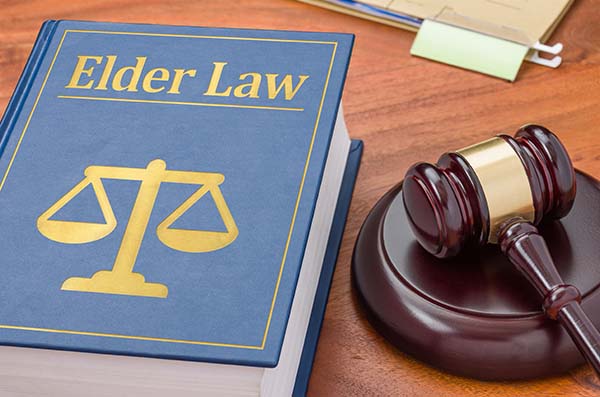Blog
Latest News
Trust Modifications Using Delaware’s Sophisticated Trust Statutes: Not Just for the Rich and Famous
On August 21, 2025, Delaware Governor Meyer signed into law this year’s set of annual updates to Delaware’s sophisticated trust statutes. It is called the Trust Act 2025. How the Trust Act comes into existence each year is pretty interesting.
Delaware’s New Uniform Health-Care Decisions Act Takes Effect September 30, 2025
Readers may recall from our March newsletter that the first major overhaul to Delaware’s health-care statutes was signed by the Governor on September 30, 2024, titled the Delaware Uniform Health-Care Decisions Act of 2023 (“DUHCDA”).
The New Right to Appeal Medicare Observation Status: An update and a Remedy!
Those Medicare recipients admitted to hospitals, who were injured by Medicare’s improper re-classification post-admission from Inpatient status to Observation status, now have the opportunity to be reimbursed for nursing home and rehabilitation services. The right extends back to 2009. The deadline for action is January 2, 2026.
Where are you going to retire? Is a Golden Visa right for you?
There are lots of articles about the best places in America to retire. Delaware pops up frequently as one of the top ten places. Both print and Internet sources abound with comparisons. Forbes, Kiplinger, and U.S. News & World Report run annual lists of the best places to retire with the criteria used to determine the rankings.
Two Very Different Cases. But Both Parties Make the Same Mistake
Here are two cases. Different courts. Different jurisdictions. Very different people. One is a United States Tax Court case where four sophisticated partnerships are seeking a charitable deduction for a conservation easement of $91 million. The other is a Delaware Superior Court case in which a SNAP recipient contested repaying a benefit overpayment of $2,341.
Selecting Agents, Successors and Trustees for You and Your Family
A woman came into my office with her daughter. She was here for estate planning. She had carefully filled out our requested questionnaire. I reviewed it with her. The questionnaire had important information we need to discuss her estate plan. That information includes the family, health status, citizenship status, assets/property, and who they want to make medical decisions and financial decisions if they need help or are unable to make decisions.
Living Arrangements for our Adult Children
Anne and Bill have an adult child who lives with them. Their forty-five-year-old Charles has significant intellectual and developmental disabilities (“IDD”). Charles does not mix well with others. He has lived in the family residence all forty-five years. Anne and Bill will leave a lot of money in the trust created for Charles upon their deaths. But a financial analysis shows that the $3 million will not sustain the house in the trust and Charles’ needs over his lifetime.
Revocability of Powers of Attorney under Delaware Law
Delaware statutes distinguish between a financial power of attorney, called a Durable Personal Power of Attorney, governed for non-commercial purposes by 12 Del. C. § 49A, and a health-care power of attorney (including an advance health-care directive for purposes of this article), governed by 16 Del. C. Chapter 25.
New Year’s Checklist: Appoint a Co-Trustee Before Emergency
Recently, my law partner wrote on the importance of informing your family of your estate plan, choosing the right people for the right jobs, being mindful in your distribution choices, and overall, promoting family harmony - views shared by none other than Warren Buffet in his recent Wall Street Journal article.
Key Benefits of Delaware’s New Uniform Health-Care Decisions Act
This is the next installment in our series on Delaware’s new Uniform Health-Care Decisions Act, which was signed into law on September 30, 2024 and goes into effect in one year on September 20, 2025. Delaware is the first State to fully enact the Uniform Act (and made some Delaware-specific additions), and other states have legislation pending. The new Act completely replaces our existing Act of the same name. The new Act has a new Optional Form that completely replaces our old form.
ALERT: Delaware’s New Uniform Health-Care Decisions Act:
First Major Overhaul to Delaware Health Care Statutes in 30 Years
The first major overhaul to Delaware’s Health Care statutes was signed by the Governor on September 30, 2024, to go into effect in one year on September 30, 2025.
Food No Longer In-Kind Support and Maintenance for SSI Benefits
The new rule we first reported on in our May 2024 Blog became effective September 30, 2024, a blessing to Supplemental Security Income (“SSI”) recipients who are subject to what’s called the In-Kind Support and Maintenance (“ISM”) rules
Your Adult Children Need to Be Prepared For Your Incapacity and Passing
A USA Today article published in the August 18, 2024 edition of the News Journal (linked at the end of this Blog) explained the perils of probate, which we often cover in our Newsletter and Blog.
Treasury and IRS Release Final Regulations on Required Minimum Distributions
Since February 2022, when Treasury and the Internal Revenue Service (IRS) issued Proposed Regulations implementing changes to the required minimum distribution (RMD) rules for individual retirement accounts and employer plans under the SECURE Act and the SECURE 2.0 Act, attorneys and financial professionals have awaited Final Regulations.
First-Ever Federal Regulations for Adult Protective Services
Until recently, Adult Protective Services (APS) has been funded and administered wholly at the state or local level. As a result, there is wide variation in APS services and practices between, and even within, states.
Food No Longer to Be Considered In-Kind Support and Maintenance for SSI Benefits
In March 2024, the Social Security Administration issued a new rule that favors disabled individuals applying for or receiving Supplemental Security Income (“SSI”). Under the new rule, starting September 30, 2024, food will no longer be considered in-kind support and maintenance (“ISM”) in ISM calculations.
Can My Lifetime Fiduciary Pay My Final Bills?
A fiduciary is someone who acts for another pursuant to legal authority to do so.
A fiduciary can act for a living individual. The most common sources of legal authority for a fiduciary to act for a living individual are: a power of attorney, a guardianship, and a trust.
Government Overreach or Necessary Law? Corporate Transparency Act Struck Down
A U.S. District Court in Alabama declared the Corporate Transparency Act (CTA) unconstitutional in the battle between privacy rights and organized crime. In National Small Business Association v. Yellen (Case No. 5:22-cv-01448)
Assisted Living in the News
Assisted Living has been in the news for at least the past year, both locally and nationally. For our clients this is a prime issue.
Ohio Court Finds that an Agent using a Power of Attorney is not Personally Liable for cost of a Nursing Home
Thanks to Professor Katherine Pearson of Dickinson Law School for bringing this case to our attention.
On May 1, 2023, an appellate court in Ohio found that the daughter's role as agent acting under a power of attorney prevented her from becoming personally liable for her mother's costs of care. The daughter appears to have properly cooperated or assisted in the original Medicaid application.




















